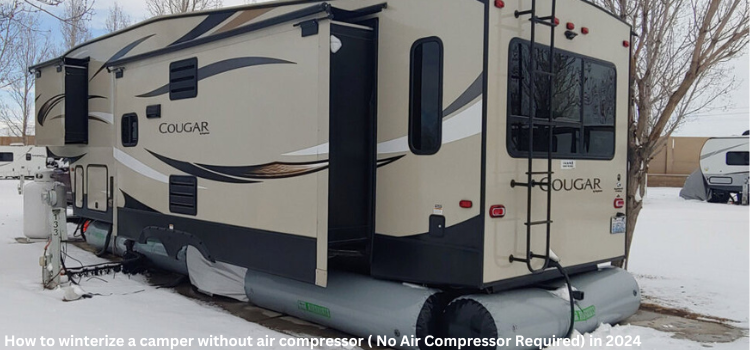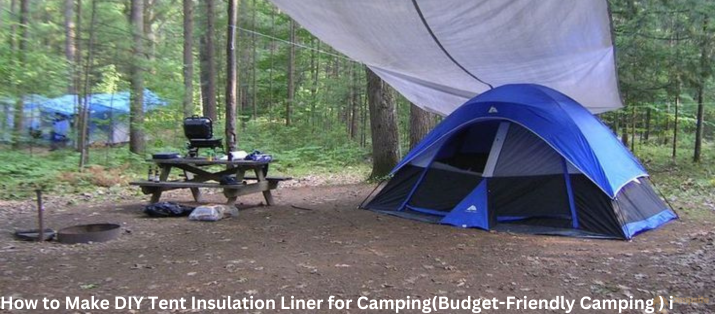Vegan camping dinners offer a delightful fusion of outdoor adventure and plant-based culinary creativity. Whether you’re a seasoned camper or a newcomer to the camping scene, embracing vegan meals during your outdoor adventure opens up a world of delicious possibilities. In this guide, we’ll explore the joys of vegan camping dinners, from hearty stews cooked over a stove to vibrant salads bursting with fresh flavors.
Camping is not just about reconnecting with nature; it’s also an opportunity to nourish your body with wholesome and nutritious meals. Vegan camping dinners provide a perfect balance of sustenance and simplicity, utilizing a variety of plant-based ingredients to fuel your outdoor adventures. With a bit of planning and preparation, you can enjoy flavorful and satisfying meals that are easy to pack, store, and prepare in a campsite setting.
Join us as we delve into the essentials of vegan camping dinners, from meal planning and preparation tips to essential supplies and equipment recommendations. Whether you’re seeking inspiration for your next camping trip or looking to elevate your outdoor dining experience, vegan camping dinners are sure to satisfy your taste buds and fuel your sense of adventure. Get ready to start on a culinary journey under the stars with these mouthwatering plant-based recipes and camping meal ideas.

Benefits of choosing a vegan diet for camping:
Selecting a vegan diet while camping offers a host of benefits that not only promote personal health. Here are some compelling reasons to embrace a vegan diet for your camping adventures:
Nutritional Richness:
Vegan camping dinners centered around whole plant foods like fruits, vegetables, grains, legumes, nuts, and seeds provide an abundance of essential nutrients, including vitamins, minerals, fiber, and antioxidants. These nutrient-dense foods help nourish your body, support optimal health, and keep you energized for outdoor activities.
Lighter Environmental Footprint:
Vegan camping dinners typically have a lower environmental impact compared to meals containing animal products. By avoiding meat, dairy, and eggs, you reduce greenhouse gas emissions, conserve water, and minimize deforestation associated with animal agriculture. Choosing plant-based ingredients promotes sustainability and helps preserve natural ecosystems, making it a more eco-friendly choice for outdoor adventurers.
Ease of Preparation and Storage:
Vegan camping dinners often involve simple recipes that require minimal cooking equipment and preparation time. Plant-based ingredients like canned beans, dried fruits, nuts, and grains are lightweight, non-perishable, and easy to pack, making them ideal for camping trips. With fewer concerns about food spoilage and refrigeration, vegan campers can enjoy greater convenience and flexibility in meal planning.
Overall, choosing a vegan diet for camping not only enhances your health and well-being but also promotes environmental stewardship. By embracing plant-based meals during your outdoor adventures, you can enjoy delicious, nutritious, and sustainable dining experiences that nourish both body and soul.
Planning and preparing for vegan camping meals:
Successfully planning and preparing vegan camping meals requires careful consideration of factors such as nutritional balance, meal variety, cooking equipment, and storage solutions. Follow these essential steps to ensure a seamless and satisfying culinary experience in the great outdoors:
Meal Planning:
Begin by creating a meal plan that includes a diverse selection of vegan dishes for breakfast, lunch, and dinner, as well as snacks and beverages. Choose recipes that are simple to prepare, require minimal cooking time and equipment, and incorporate a variety of plant-based ingredients for optimal nutrition and flavor.
Ingredient Selection:
Select vegan-friendly ingredients that are lightweight, portable, and easy to store. Consider incorporating staples like canned beans, lentils, quinoa, rice, pasta, dried fruits, nuts, seeds, and spices, along with fresh produce that can withstand travel and outdoor conditions. Prioritize foods that offer sustained energy and satiety for sustained outdoor activities.
Cooking Equipment:
Invest in lightweight and compact cooking equipment suitable for camping, such as a portable stove, camping grill, or stove cooking gear. Pack essential utensils, pots, pans, and cooking utensils that are durable and easy to clean.
Storage Solutions:
Choose storage containers and food packaging that are airtight, waterproof, and resistant to outdoor elements. Utilize resealable bags, insulated coolers, and waterproof containers to keep perishable and non-perishable foods fresh and organized during transport and storage. Label containers with contents and expiration dates for easy identification and inventory management.
Safety and Hygiene:
Practice food safety and hygiene protocols to prevent contamination and foodborne illness while camping. Wash hands thoroughly before handling food, use clean utensils and surfaces for meal preparation, and store perishable items at safe temperatures to avoid spoilage. Follow proper cooking and reheating guidelines to ensure that vegan meals are cooked to a safe internal temperature.
Planning and preparing for vegan camping meals, you can enjoy delicious, nutritious, and hassle-free dining experiences amidst the beauty of nature. With the right ingredients, equipment, and techniques, you’ll be well-equipped to savor the flavors of plant-based cuisine and fuel your outdoor adventures with wholesome and satisfying meals.
Essential supplies and equipment for vegan camping meals:
When preparing vegan camping meals, having the right supplies and equipment is important for a successful outdoor culinary experience. Here are the essential items you’ll need to create delicious plant-based dishes while camping:
Portable Stove or Camping Grill:
A portable stove or camping grill allows you to cook meals outdoors with ease. Choose a lightweight and compact stove that runs on propane or butane for convenient cooking flexibility. Alternatively, a sturdy camping grill for grilling vegetables, tofu, and burgers over an open flame.
Cookware Set:
Pack a flexible cookware set that includes pots, pans, and cooking utensils suitable for camping. Look for lightweight and durable materials like aluminum or stainless steel that can withstand outdoor conditions and high heat. Ensure your cookware set includes a pot for boiling water, a skillet for sautéing, and a pot with a lid for simmering soups and stews.
Grilling Tools:
Bring along grilling tools such as long-handled tongs, spatulas, and grill brushes for flipping and turning food on the grill. Invest in a set of skewers for grilling vegetable skewers with tofu, allowing you to create flavorful and satisfying kebab-style dishes over an open flame.
Dutch Oven:
A Dutch oven is a flexible cooking vessel that’s perfect for preparing hearty one-pot meals like vegan chili while camping. Choose a cast iron or enamel-coated Dutch oven that retains heat well and can be used for stovetop cooking. Its deep design and tight-fitting lid make it ideal for slow-cooking stews, soups, and braised dishes.
Cooler or Insulated Bag:
Keep perishable ingredients fresh and safe during transportation by packing them in a cooler or insulated bag. Choose a durable cooler with double storage space and efficient insulation to maintain cold temperatures for an extended period. Use ice packs or frozen water bottles to keep contents chilled and prevent food spoilage while camping.
Reusable Containers and Bags:
Pack reusable containers and bags for storing ingredients, leftovers, and prepared meals while camping. For lightweight and airtight containers that are easy to pack, stack, and clean. Use resealable bags for storing snacks, trail mix, and dry ingredients, reducing waste and promoting sustainability in your camping kitchen.
By ensuring you have these essential supplies and equipment on hand, you’ll be well-prepared to create delicious vegan camping meals like grilled vegetable skewers with tofu, lentil and vegetable stew, quinoa salad with beans, corn, and avocado, vegan chili, and portobello mushroom burgers with sweet potato fries. With the right tools and techniques, you can enjoy flavorful and nutritious plant-based dishes while immersing yourself in the beauty of the great outdoors.
How to Pack and Store Vegan Meals for Camping Trips:
Properly packing and storing vegan meals is essential for ensuring food safety, freshness, and convenience during camping trips. Follow these tips to pack and store your plant-based meals effectively for a successful outdoor culinary experience:
Organize Ingredients:
Before packing, organize your ingredients and pre-prepared components for each meal to streamline the packing process. Group together items that will be used in the same recipe, such as canned beans, grains, and spices for a vegan chili, or chopped vegetables and tofu for grilled skewers.
Use Sealable Containers:
Pack ingredients and prepared dishes in sealable containers to prevent leaks, spills, and cross-contamination during transportation. Choose lightweight and durable containers that are airtight and waterproof to keep food fresh and protected from outdoor adventure.
Optimize Cooler Space:
Pack perishable items like fresh produce, tofu, and dairy-free alternatives in a cooler with ice packs or frozen water bottles to keep them chilled and safe to consume. Arrange items strategically to optimize cooler space and ensure even cooling throughout. Place heavier items at the bottom and lighter items on top to prevent crushing and squishing.
Separate Raw and Cooked Foods:
Keep raw ingredients separate from cooked foods to prevent cross-contamination and foodborne illness. Use separate containers or sealable bags for raw vegetables, fruits, and tofu, and store them away from cooked dishes to maintain food safety standards.
Minimize Packaging Waste:
Pack ingredients in reusable containers and bags to minimize packaging waste and promote sustainability in your camping kitchen. Choose eco-friendly alternatives to single-use plastic bags and wrappers, such as silicone storage bags, stainless steel containers, and beeswax wraps.
By following these guidelines for packing and storing vegan meals, you can enjoy delicious and nutritious plant-based dishes while camping without compromising on taste, quality, or food safety. With careful planning and organization, you’ll be well-equipped to savor the flavors of outdoor cooking and make the most of your camping adventures.
Tips for meal planning and preparation for vegan camping dinners:
Meal planning and preparation are essential aspects of ensuring a smooth and enjoyable camping experience, especially when following a vegan diet. Here are some helpful tips to streamline your meal planning and preparation process for vegan camping dinners:
Plan Simple and Versatile Meals:
Choose vegan recipes that are simple to prepare and use versatile ingredients that can be easily adapted to different meals. For one-pot dishes, wraps, sandwiches, and salads that require minimal cooking equipment and offer flexibility in ingredient substitutions.
Consider Nutritional Balance:
Ensure that your vegan camping meals are nutritionally balanced and provide essential nutrients needed for sustained energy and outdoor activities. Incorporate a variety of plant-based foods such as fruits, vegetables, grains, legumes, nuts, and seeds to meet your dietary needs and fuel your adventures.
Prep Ingredients in Advance:
Preparing ingredients in advance can save time and effort during your camping trip. Wash, chop, and portion out vegetables, fruits, and tofu ahead of time, and store them in sealable containers or bags for easy access and assembly. Cook grains, beans, and lentils in advance and pack them in separate containers for quick meal assembly.
Pack Lightweight and Non-Perishable Foods:
Choose lightweight and non-perishable foods that are easy to pack, store, and transport for camping trips. For canned beans, lentils, quinoa, rice, pasta, dried fruits, nuts, seeds, and spices that require minimal refrigeration and cooking time. Pack shelf-stable dairy-free alternatives like plant-based milk, cheese, and yogurt for added convenience.
Experiment with Flavorful Seasonings:
Enhance the flavor of your vegan camping meals by experimenting with a variety of herbs, spices, marinades, and sauces. Pack small containers of your favorite seasonings, condiments, and flavor enhancers to add depth and complexity to your dishes. Consider making homemade spice blends or marinades in advance to save space and reduce packaging waste.
By incorporating these tips into your meal planning and preparation routine, you can enjoy delicious and satisfying vegan camping dinners that nourish your body and elevate your outdoor dining experience. With a bit of creativity and foresight, you’ll be well-prepared to savor the flavors of plant-based cuisine amidst the beauty of nature.
Conclusion:
As more and more people are adopting a vegan lifestyle, it’s important to have delicious and satisfying options for every occasion, including camping dinners. By following these tips and recipes, you can enjoy flavorful and nutritious meals while camping without compromising your dietary choices. From hearty chili to grilled veggies, the possibilities for vegan camping dinners are endless. So next time you head out on a camping trip, don’t forget to pack some plant-based ingredients and get ready to impress your fellow campers with your tasty vegan meals.
FAQS:
Why do some vegans age faster?
Consuming vegan food does not ensure that you will mature faster or slower than other people. However, a well-balanced plant-based diet guards against ageing too soon. Plant-based diets have a positive impact on oxidation, inflammation, and glycation—the three major processes that lead to aging.
Why do vegans age slower?
Whole grains, fruits, and vegetables abound in vegan diets. According to research, eating a vegan diet can lengthen your life by increasing your intake of antioxidants, plant protein, and fiber. Consuming less red meat can lower the risk of cardiovascular disease, which is another benefit of going vegan.
What is the most eaten vegan food?
Beans of many kinds, including lentils, chickpeas, black beans, pinto beans, and many more, are a staple of the majority of vegan diets. Tofu and tempeh, two soy-based proteins that are popular among vegans, are excellent meat substitutes in stir-fries, soups, and stews due to their mild flavor.






